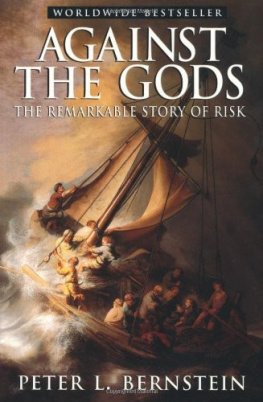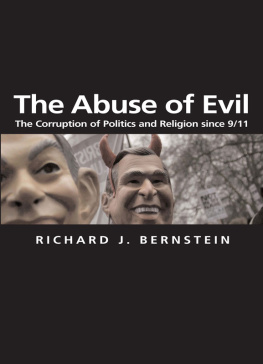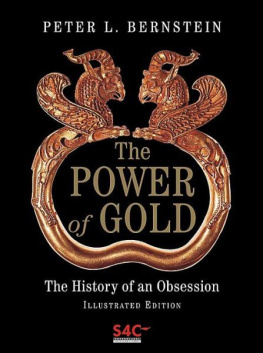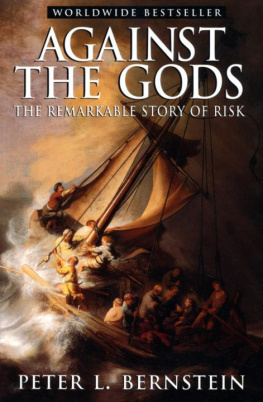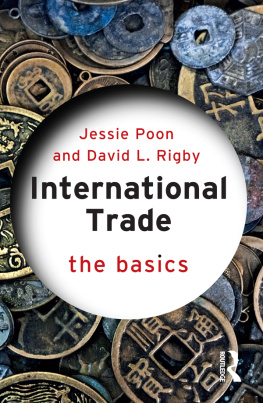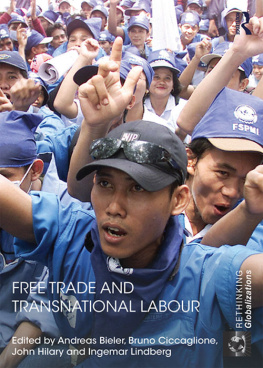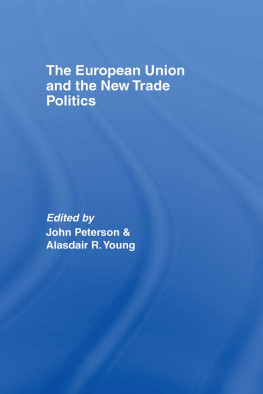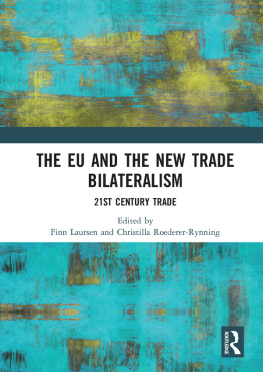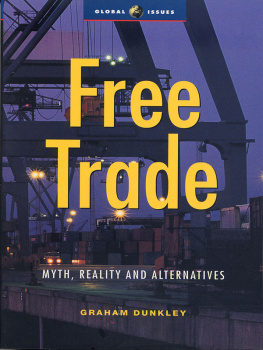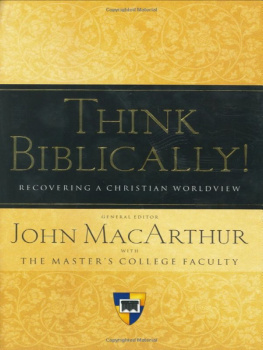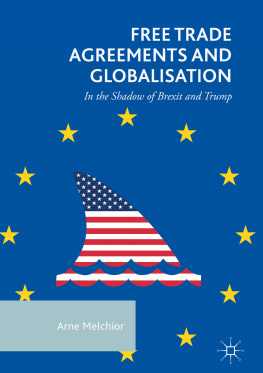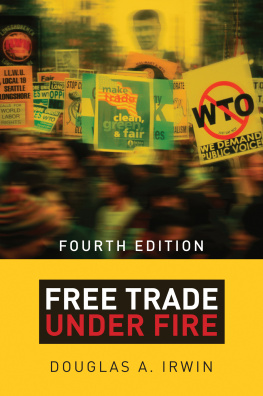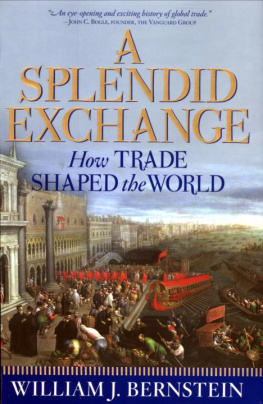ACKNOWLEDGMENTS
No author writes a nonfiction work of any length and scope without shamelessly relying upon family, friends, colleagues, publishing staff, and total strangers for advice and direction. I could not have written this book without the help of numerous individuals.
Leonard Andaya, Liam Brockey, Peter Downey, Lee Drago, Christopher Ehret, David Eltis, Mark Garrison, Dermot Gately, Katheryn Gigler, Peter Gottschalk, Michael Guasco, Jonathan Israel, Glenn May, Joel Mokyr, J. P. McNeill, the late Clark Reynolds, Giorgio Riello, Patricia Risso, Dani Rodrik, Ron Roope, Bradley Rogers, Sanjay Subrahmanyam, Steve Vinson, David Warsh, Roger Weller, Jonathan Wendel, and Willem Wolters provided much needed referencing information.
In particular, I would like to thank the following for help in these specific areas: Walter Bloom and Jeremy Green, Australian silver coin finds; Roger Burt, British and American mining history; Fred Drogula and Jean Paul Rodrigue, maritime chokepoints; Michael Laffan, the Ternatan Rebellion; Jonathan Rees, the mysteries of early refrigerated shipping; Ronald Rogowski, the politics of the Stolper-Samuelson theorem; Richard Sylla, the early planning stages of the book; Daniel Trefler, recent Canadian trade history; Carl Trocki, opium addiction in nineteenth-century China; Shelly Wachsmann, early maritime history; and Jeffrey Williamson, the quantitative aspects of recent economic history.
I pestered several people unmercifully; they are owed not only thanks but apologies: Donald Kagan for helping me disguise, if only thinly, my deficiencies in Greek history; Mark Wheelis for reminding me of the things I should have learned in microbiology about the plague bacillus; Sidney Mintz for providing valued guidance on the history of the Caribbean sugar trade; and last, and most certainly not least, Doug Irwin for assistance in picking my way through the intellectual history of the never-ending battle between protection and free trade.
Two giants of economic and financial journalismPeter Bernstein and Jason Zweigoffered priceless advice, as did other friends: Barney Sherman, Bob Uphaus, and Ed Tower, as well as Eds students in his Neat New Books in International Trade and Economic Development course at Duke University, particularly Eric Schwartz and Mark Marvelli.
Wesley Neff generously lent his long years of literary experience to the project from start to finish; Toby Mundy, Morgan Entrekin, Luba Ostashevsky, and Michael Hornburg at Grove/Atlantic Press provided expert editorial guidance; Matthew Ericson created the books maps; Lewis OBrien provided permission and imaging assistance; and Molly Blalock-Koral helped secure obscure reference materials.
Two editors at Grove/Atlantic, Brando Skyhorse and Jofie Ferrari-Adler, deserve special mention. Brando taught me a multitude of narrative skills that I sorely lacked and supplied the fortitude to attack what seemed an insurmountably broad topic, while Jofie polished it to a smoothness that I could not have achieved on my own and adroitly shepherded the book through the production process.
Finally, my wife Jane Gigler supplied, in addition to superhuman quantities of patience and large blocks of her precious free time, what can only be described as literary alchemy. Over the past several years, she showed me how to transform an amorphous mass of jumbled, disorganized prose into pages I could send to my editors with a clear conscience. I do not deserve her.
BIBLIOGRAPHY
Abdurachman, Paramita R., Niachile Pokaraga: A Sad Story of a Moluccan Queen, Modern Asian Studies 22, no. 3 (1988, special issue): 571-592.
Abu-Lughod, Janet, Before European Hegemony (Oxford: Oxford University Press, 1989).
Acemoglu, Daron, et al., Reversal of Fortune: Geography and Institutions and the Making of the Modern World Income Distribution, Quarterly Journal of Economics 117 (November 2002): 1231-1294.
Adlington, William, trans., The Golden Ass of Apuleius (New York: AMS, 1967).
Ahmad, S. Maqbul, ed., Arabic Classical Accounts of India and China (Shimla: Indian Institute of Advanced Study, 1989).
Alesina, Alberto, and Roberto Perotti, Income Distribution, Political Instability, and Investment, European Economic Review 40 (1996): 1203-1228.
Andaya, Leonard Y., The World of Maluku (Honolulu: University of Hawaii Press, 1993).
Anderson, Oscar Edward Jr., Refrigeration in America (Princeton: Princeton University Press for University of Cincinnati, 1953).
Anonymous, Behind the Mask, Economist (March 18, 2004).
Anonymous, China and the Foreign Devils, Bulletin of the Business Historical Society 3, no. 6 (November 1929): 15.
Anonymous, Coal Ammonia for Refrigeration, Scientific American 64 (1891): 241.
Armstrong, Karen, Muhammad (New York: Harper San Francisco, 1993).
Ashton, T. W., The Industrial Revolution, 1760-1830 (Oxford: Oxford University Press, 1967).
Ashtor, E., Profits from Trade with the Levant in the Fifteenth Century, Bulletin of the School of Oriental and African Studies 38 (1975): 250-275.
Aubert, Maria Eugenia, The Phoenicians and the West, 2nd ed. (Cambridge: Cambridge University Press, 2001).
Ayalon, David, The Circassians in the Mamluk Kingdom, Journal of the American Oriental Society 69 (July-September 1949): 135-147.
Ayalon, David, The Mamluk Military Society (London: Variorum Reprints, 1979).
Ayalon, David, Studies on the Structure of the Mamluk ArmyI, Bulletin of the School of Oriental and African Studies, University of London 15 (1953): 203228.
Bachhuber, Christoph, Aspects of Late Helladic Sea Trade, masters thesis, Texas A&M University (December 2003).
Bairoch, Paul, Economics and World History (Chicago: University of Chicago Press, 1993).
Bairoch, Paul. European Trade Policy, 1815-1914, in Peter Mathias and Sidney Pollard, eds., The Cambridge Economic History of Europe, vol. 8 (Cambridge: Cambridge University Press, 1989).
Barber, William J., British Economic Thought and India, 1600-1858 (Oxford: Clarendon, 1975).
Barnes, Donald Grove, A History of the English Corn Laws (New York: Augustus M. Kelley, 1961).
Barton, John H., et al., The Evolution of the Trade Regime (Princeton: Princeton University Press, 2006).
Basevi, Giorgio, The Restrictive Effect of the U.S. Tariff and Its Welfare Value, The American Economic Review 58, no. 4 (September 1968): 840-852.
Bastin, John, The Changing Balance of the Southeast Asian Pepper Trade, in M. N. Pearson, ed., Spices in the Indian Ocean World (Aldershot: Variorum, 1996).
Baumol, William J., Productivity Growth, Convergence, and Welfare: What the Long-Run Data Show, American Economic Review 76, no. 5 (December 1986): 1072-1085.
Beeching, Jack, The Chinese Opium Wars (New York: Harcourt Brace Jovanovich, 1975).
Beja-Pereira, Albano, et al., African Origins of the Domestic Donkey, Science 304 (June 18, 2004): 1781-1782.
Bernstein, Peter L., The Wedding of the Waters (New York: Norton, 2005).
Bernstein, William J., The Birth of Plenty (New York: McGraw-Hill, 2004).
Bhagwati, Jagdish, In Defense of Globalization (Oxford: Oxford University Press, 2004).
Bhagwati, Jagdish, et al., The Muddle over Outsourcing, Economic Perspectives 18, no. 4 (Fall 2004): 93-114.
Bils, Mark, Tariff Protection and Production in the Early U.S. Cotton Textile Industry, Journal of Economic History 44, no. 4 (December 1984): 1033-1045.
Blake, Robert, Jardine Matheson (London: Weidenfeld and Nicholson, 1999).


